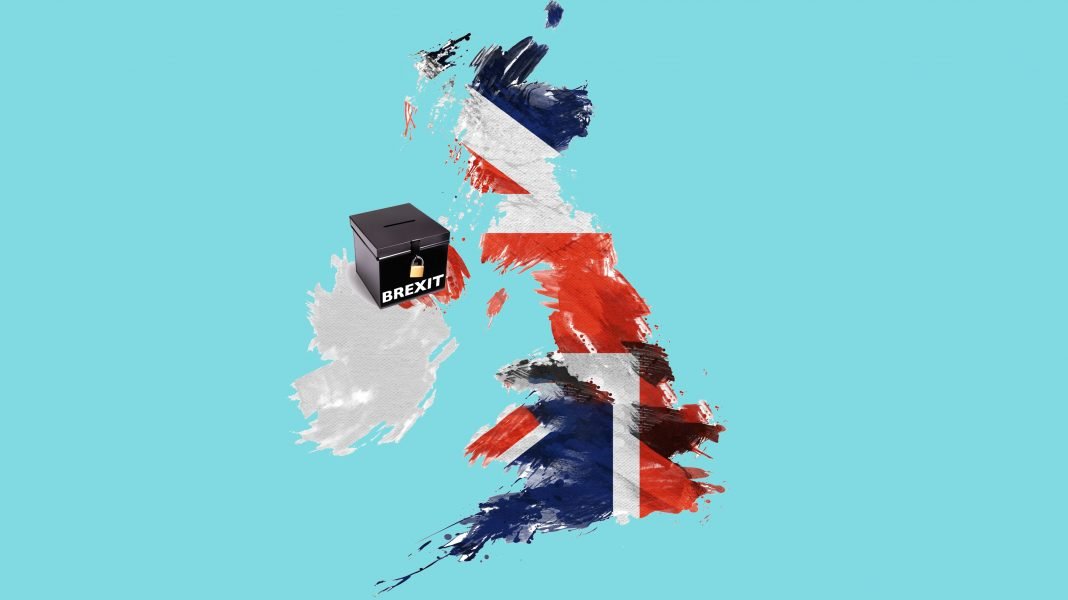Brexit Takes Place Against the Will of People in Northern Ireland
The pattern of voting revealed stark differences between regions, countries and generations in the United Kingdom as 52% voted for leave in the 2016 EU referendum with a narrow lead. Scotland voted with a large majority to remain in the EU, as well as a majority in Northern Ireland and London, whilst a large majority of electoral districts in provincial England voted to leave.
There were 17,410,742 voters in provincial England, or 51.9% of the total, who wanted to leave the EU, and 16,141,241, or 48.1%, who wanted to remain. So far, there have been many complaints about the Brexit referendum, but to no avail.
Voters in Northern Ireland, where the industrial revolution transformed the city of Belfast, also voted to remain. The leave vote was about 14% lower in Northern Ireland and Scotland once other variables were taken into account. The variables are insignificant except for
The Effects of Brexit
On the positive side, Brexit will allow for less of an EU-induced regulatory burden, and also for lower welfare losses due to EU protectionism. However, these effects appear relatively moderate and, in the more reliable studies, they are outweighed by the disadvantages of economic integration with the EU.
Brexit risks are likely to have been underestimated and the economic damages to the UK could be significantly higher than what has been suggested.
The EU is the main trading partner for the UK – it is the destination for around 45% of all British goods and around 38% of total services exported from the UK. According to the arrangements between the UK and the EU, Brexit imposes higher EU trade barriers.
Trade transaction costs rose and customs clearance requirements led to delays for British firms exporting to the EU. Moreover, the UK partially lost access to the EU Market, which particularly affected the freedom to establish and provide services in the EU. Further trade barriers also prompted British and foreign companies to shift jobs from the UK to the continent. The UK (and in particular the City of London) could suffer from relocations, especially as US companies use the UK as a bridgehead for the EU. Moreover, EU companies could cut UK firms out of their (just-in-time) cross border value chains due to higher trade costs and time delays.
Immigration to the UK, especially by those coming from the EU, has been a concern for a long time prior to Brexit. Immigration affects many aspects of life, because the workforce is so valuable to the UK, and farmers, hospitals, healthcare providers and industrialists are very concerned about it.
The UK’s existing interregional inequalities, which are already very high by international standards, are likely to increase as a result of Brexit. In addition, within the UK, the competitiveness of the relatively weaker parts of each of the broad macro regions tend to be more severely hit (and with more certainty) than the more prosperous parts of each of the macro regions. For instance, within the broad macro region of Southern England, the areas where competitiveness is most adversely affected by Brexit are East Anglia, Devon, Cornwall, Essex, and Kent, while London and the western arc around London through the Thames Valley have actually gained in competitiveness.
Fundamental Changes Are on the Way
As members of the European Union, Ireland and the UK both have a common labour market. Authorities abolished systematic customs checks between the two regions in 1993. Brexit spells the end of the common labour market and the beginning of formal border controls, which will aggravate problems in Northern Ireland and may endanger the 1998 peace accord, the so-called Good Friday Agreement. Thus, it could be said that the UK’s departure from the European Union will affect Northern Ireland more than any other parts of UK.
The protocol on Northern Ireland proved to be the trickiest element of the UK-EU Withdrawal Agreement to negotiate. The version that was finally agreed by both sides sees the EU’s customs code and regulatory rules applying to Northern Ireland. In avoiding a hard border for the movement of goods on the island of Ireland, there are new frictions on the movement of goods within the United Kingdom (across the Irish Sea). Implementing the protocol is a complex, practical as well as political challenge. What it means in practice is largely dependent on the nature of the UK-EU relations.
Also, critics of partition argue that Brexit contributes to the perpetuation, rather than the amelioration, of territorial conflicts. The island has been partitioned into two polities for a century. Opposition to the partition of Ireland has existed from the outset until now, currently under the terms of Brexit. The argument is that while hostility towards partition has experienced different forms with different degrees of violent political intensity, there is a historical continuum of contestation against partition in Ireland. While the territorial issue was calmed by the 1998 Good Friday Agreement, Brexit has renewed the border question, providing political momentum for those who aim to challenge the territorial status quo.
Britain’s exit from the EU has had advantages and disadvantages; the disadvantages seem to be more prominent, but Britain’s goals in the long run determine the potential benefits of Brexit. The negative impact of Brexit on the economy, trade and foreign relations with other countries – especially EU countries – is very clear. In addition, ethnic and racial disparities have added to it because Britain is a multinational state.
One of these is Northern Ireland with a history of protests. Before Brexit, Northern Ireland held a good economic and industrial position, but it is now worried about losing it. Also, Covid-19 and the injustices done to them have increased tensions here.

